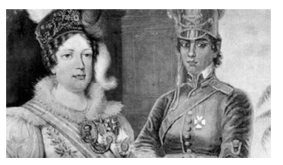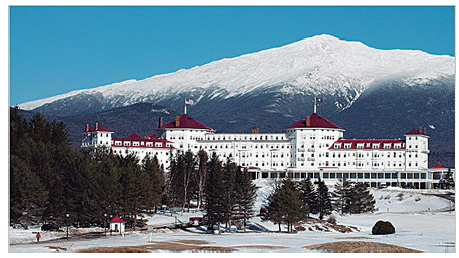Questões de Vestibular
Sobre pronomes | pronouns em inglês
Foram encontradas 139 questões
Complete o quadro com os respectivos pronomes.

In the second paragraph, the pronoun “one” in “one would think” could be, without harming the grammar of the sentence, replaced by you or by people.






The pronoun “themselves” (in the third sentence of the second paragraph) refers to “Some philosophers”, in the same sentence.

In the title of the letter alluded to in the first paragraph, the word “her” is used four times with the same meaning and could correctly be replaced by his in all four cases, had the letter been written to the Prince.

https://www.theguardian.com/environment/
2021/sep/27/
Text
The School of the Future


Disponível em: https://www.typekids.com/blog/the-school-of-the-future/ Texto adaptado. Acesso em: 30 ago. 2020.
The pronoun it is referring respectively to
Text 2
Home

No one leaves
home unless home is the mouth of a shark
you only run for the border
when you see the whole city running as well
Your neighbors running faster than you
breath bloody in their throats
the boy you went to school with
who kissed you dizzy behind the old tin factory
is holding a gun bigger than his body
you only leave homewhen
home won‘t let you stay.
No one leaves home unless home chases you
fire under feet
hot blood in your belly
it‘s not something you ever thought of doing
until the blade burnt threats into
your neck
and even then you carried the anthem under
your breath
only tearing up your passport in an airport toilet
sobbing as each mouthful of paper
made it clear that you wouldn‘t be going back.
You have to understand,
that no one puts their children in a boat
unless the water is safer than the land
no one burns their palms
under trains
beneath carriages (…)

I want to go home,
but home is the mouth of a shark
home is the barrel of the gun
and no one would leave home
unless home chased you to the shore
unless home told you to quicken your legs
leave your clothes behind
crawl through the desert
wade through the oceans (…)
No one leaves home until home is a sweaty voice in your ear
saying –
leave,
run away from me now
I dont know what I‘ve become
but I know that anywhere
is safer than here.
By Warsan Shire. Disponível em: https://www.facinghistory.org/educator-resources/current-events/many-faces-global-migration#8 Excertos.
Acesso em: set. 2020.
Text 1
What is Distance Learning and Why Is It So Important?


(nytimes.com)
Shimmering white and gracefully statuesque, the Mount Washington Hotel is a granite fortress, a manmade anomaly among the raw wilderness of the surrounding White Mountains in remote northern New Hampshire, U.S. Even to this day, the hotel is geographically secured by 800,000 acres of the White Mountain National Forest around it. This was the main reason why the Hotel was chosen for a World War Two meeting – a meeting that shaped present-day global economic policies.
(Linda Laban. www.bbc.com, 26.08.2020. Adapted.)
The term “this”, which introduces the last sentence in the text, refers to the fact that the Mount Washington Hotel



I -The word it(I. 22) refers to art(I. 21) II -The word lt (I. 39) refers to the defense of art (I. 39) III- The word its (I. 56) refers to art (I. 57)
Which ones are correct?


I - A palavra who (l. 49) poderia ser substituída por that, sem prejuízo da correção gramatical e do significado original do texto. II - A palavra what (l. 52) poderia ser substituída por which, sem prejuízo da correção gramatical e do significado original do texto. III- As palavras whom (l. 56) e them (l. 57) referem-se à mesma palavra.
Quais estão corretas?
Big education publisher to end printed textbooks
The world's largest education publisher, Pearson, has said it will gradually phase out printed textbooks. It has taken a decision to make all of its learning resources "digital first". Pearson said the future of the industry is in e-books and digital services. Pearson CEO John Fallon explained more about the company's future direction. He told the BBC: "We are now over the digital tipping point. Over half our annual revenues come from digital sales, so we've decided, a little bit like in other industries like newspapers or music or in broadcast, that it is time to flick the switch in how we primarily make and create our products." He added: "I am increasingly confident and excited about this." Pearson said a huge advantage of digital books is that they can be continually updated, _________3 means teachers will always have access to the latest versions of textbooks. Mr. Fallon said Pearson would stop its current business model of revising printed course books every three years. He said this model has dominated the industry for over four decades and is now past its use-by date. Fallon said: "We learn by engaging and sharing with others, and a digital environment enables you to do that in a much more effective way." He added the digital books will appeal to the "Netflix and Spotify generation". Textbook writers are worried they will earn less from their books as digital products are sold on a subscription basis.
Source: https://breakingnewsenglish.com/1907/190718- textbooks.html Captured on: 26/07/19
THE STORY OF ELLIS ISLAND
Mass migrations have marked the history of the human race ever since people began to dream of a better life

Disponível em: <https://linguapress.com/advanced/ellis-island.htm>. Acesso em: 7 out. 2019. Adaptado.
I. _____ was this house built? In 1980. II. ______ hit you? Martha’s brother hit me. III. __________ do you study English? Twice a week. IV. __________ sisters do you have? Two. Their names are Paola and Marianne. V. __________ is your school? Only 2 Km.
Assinale a alternativa com a seqüência correta de respostas:


